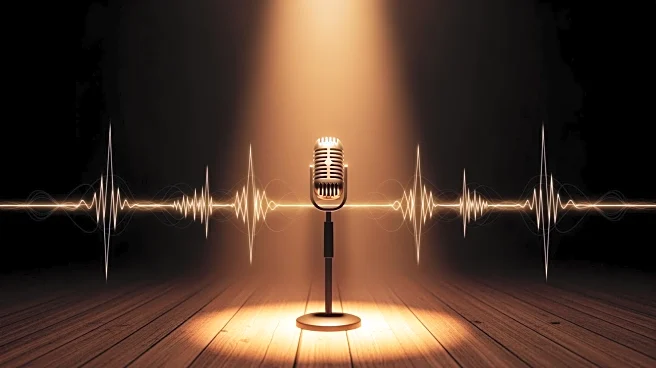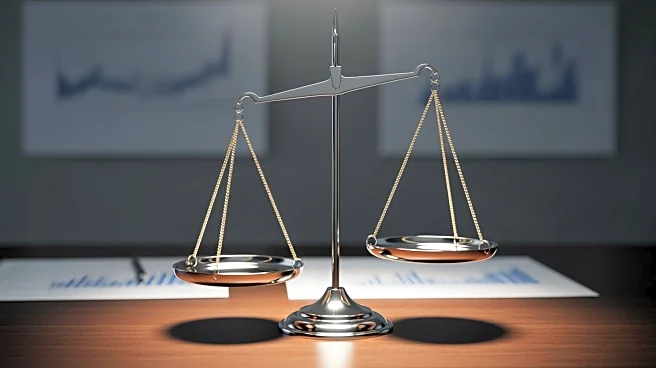What's Happening?
A song created through artificial intelligence, titled 'Walk my Walk' by Breaking Rust, has reached No. 1 on Billboard's Country Digital Song Sales chart. The track has amassed over 3 million streams on Spotify in less than a month, marking a significant
milestone for AI-generated music. The success of the song has sparked mixed reactions within the music industry, with discussions proliferating on platforms like TikTok. Many users have posted videos addressing the song, while others have engaged in debates in the comments section. Billboard has noted that Breaking Rust is an AI act, one of at least six AI-generated artists to chart in recent months. The development has raised questions about the future of AI in music and its potential impact on human artists.
Why It's Important?
The rise of AI-generated music, as exemplified by Breaking Rust's chart-topping success, poses significant implications for the music industry. It challenges traditional notions of artistry and creativity, as AI artists do not require the same resources or support as human artists. This could lead to shifts in how music is produced and consumed, potentially affecting the livelihoods of human musicians. As companies consider the cost-effectiveness of AI-generated music, there is concern about the long-term impact on the industry, including the potential reduction in opportunities for human artists. The situation highlights the need for discussions around the ethical and economic dimensions of AI in creative fields.
What's Next?
The success of 'Walk my Walk' may prompt further exploration and investment in AI-generated music by record labels and tech companies. This could lead to an increase in AI acts charting and potentially dominating certain music genres. Industry stakeholders, including artists and unions, may seek to address the implications of AI in music through policy discussions and advocacy. The ongoing debate may also influence consumer perceptions and acceptance of AI-generated content, shaping future trends in music consumption.
Beyond the Headlines
The emergence of AI-generated music raises broader questions about the role of technology in creative industries. It challenges the definition of creativity and authorship, prompting discussions about intellectual property rights and the value of human input in art. The trend may also influence cultural perceptions of music, as audiences grapple with the authenticity and emotional resonance of AI-created works. Long-term, this could lead to shifts in cultural norms and values surrounding art and technology.
















